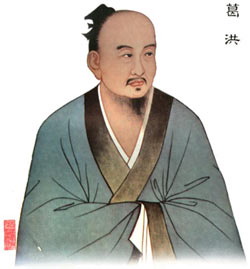As a result of limited oversight, consumers and clinicians alike should have concerns for safety, efficacy, contents, bioavailability, and dosing of the variety of products available on the United States market.

As a result of limited oversight, consumers and clinicians alike should have concerns for safety, efficacy, contents, bioavailability, and dosing of the variety of products available on the United States market. Bulk herbs are raw plant materials used to prepare other dosage forms. Powdered herbs and extracts in oral dosage forms are the most popular. Specific compounds from a bulk herb may be extracted and placed into a dosage form. Extracts concentrate the active components. They may be taken as such or made into a fluid extract or tincture including a solvent. Tinctures are made when the active component is not water soluble. Tinctures and freeze-dried herbs are preferred to those that are dried or encapsulated because of less loss of potency by oxidation.
The chemical stability of these products is complex, making it a challenge to determine expiration or shelf-life dating. Botanicals packaged in dosage forms for medicinal purposes may behave as drugs, even if not regulated as such. Each constituent must obey pharmaco-kinetic principles, and these data remain quite limited.[29] The pharmacologic effects attributed to raw plant materials may vary from those of isolated constituents.
Even when the chemical composition of a plant extract is known, the pharmacologically active moiety(ies) may not be. Environment, climate, and growth conditions influence composition, as does the specific part of the plant and its maturity. Monographs detailing standardization of active ingredients would improve the marketplace. Even if an herbal product is standardized to, for example, 4% of a constituent, the remaining 96% of ingredients is not standardized and may affect the products solubility, bioavailability, stability, efficacy, and toxicity.
Although USP evaluates a number of botanicals to develop informational and standards monographs (despite weaker data from safety and efficacy trials), criteria for quality, purity, and labeling are not eased.[25] A product that meets NF specifications has met a national standard for purity, strength, quality, and labeling compared with the term "standardized" used by an individual manufacturer to refer to consistency of an ingredient across batches of a given product. Recent USP/NF standards pertaining to St. Johns wort, chamomile, feverfew, ginkgo, Asian ginseng, and saw palmetto join earlier standards published for ginger, valerian, and garlic.[30]
Just as controlled trials are necessary to establish safety and efficacy, manufacturing standards are required to ensure product quality. Ideally, quality control and assurance methods should be defined for each product on the market. Without adhering to standards for purity and potency -- or for that matter disintegration and dissolution -- how is the consumer protected? Consumers assume products on the market are at least safe, regardless of efficacy or claims. Products may be marketed without verifying the identity of ingredients, and even USP/NF monographs do not have to be followed if the product is not labeled as a USP/NF product. Several traditional pharmaceutical firms now are involved in herbal dietary supplements (e.g., Bayer Corp., American Home Products Corp., Warner-Lambert Co.). As they work to meet standards developed by USP, as documented internally or published externally, confidence in the quality and safety of these products may improve. At present there is no way to document phytoequivalence of preparations. Active ingredients, potency, and purity of products in impending trials have to be standardized and verified based on official monographs. Until standards are established, limited information on dosage, source, quality, and purity should be recognized before consumers self-administer an herbal medicine.
According to medscape